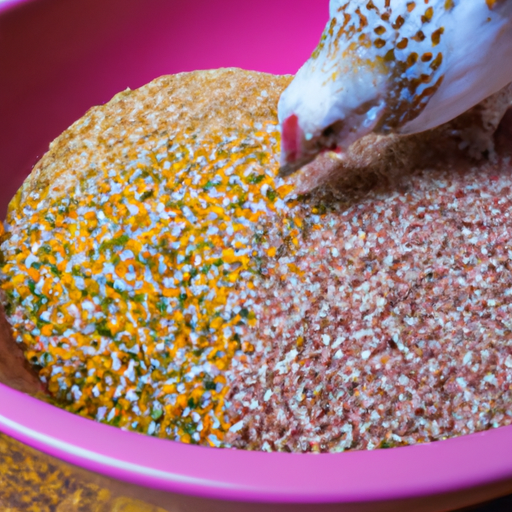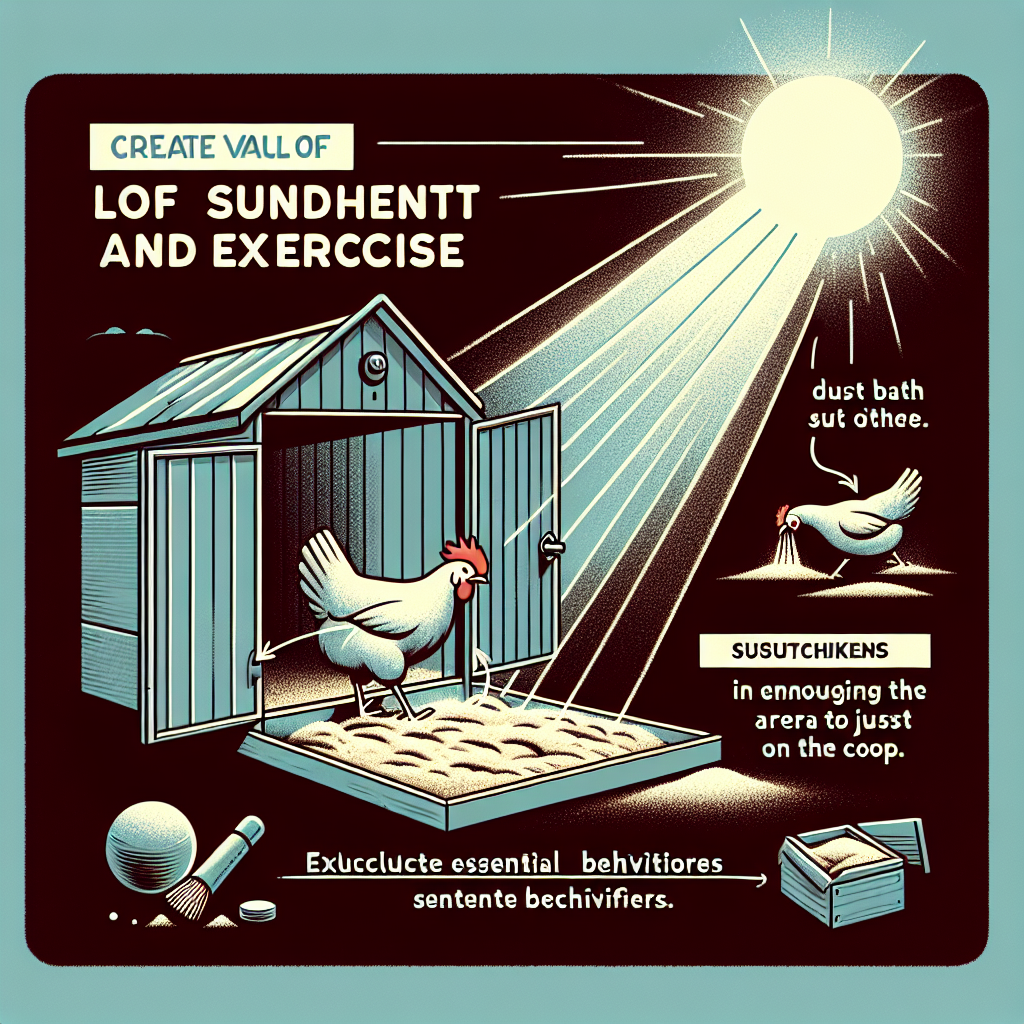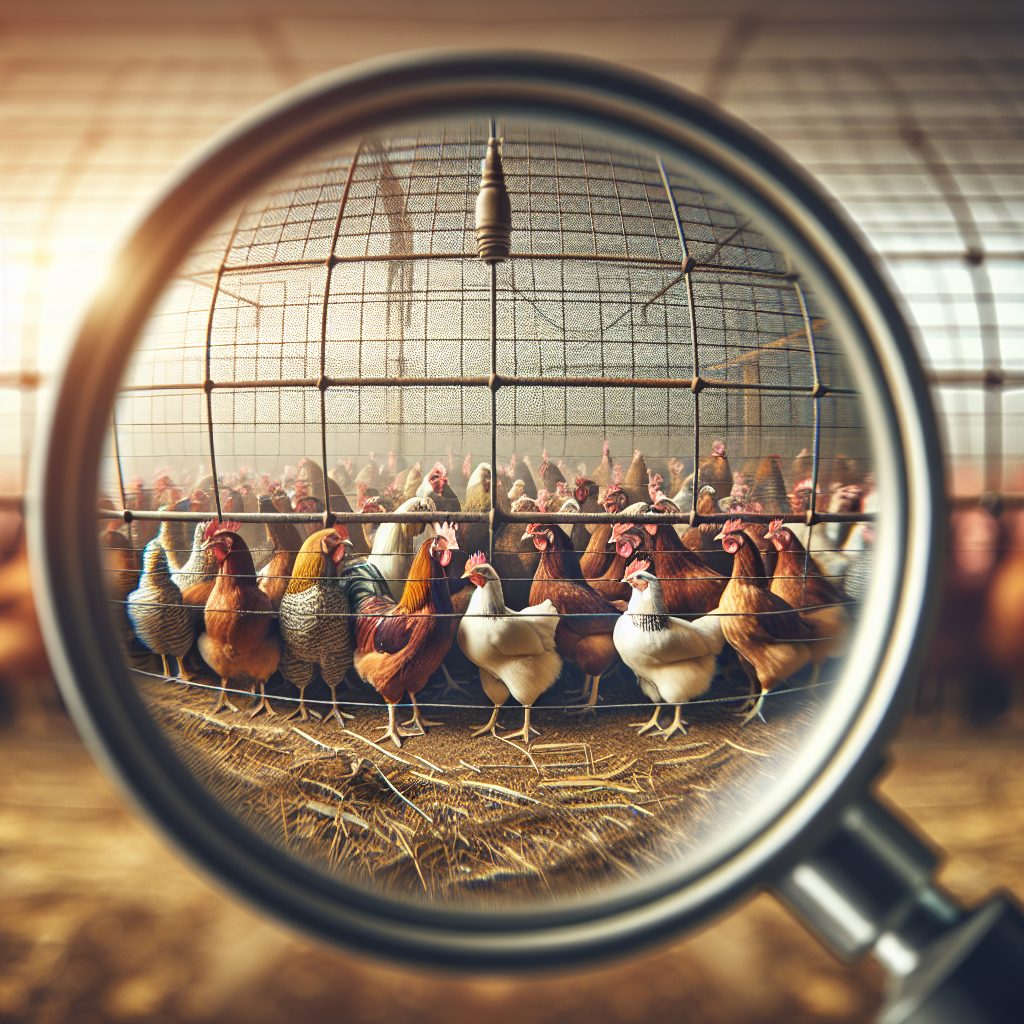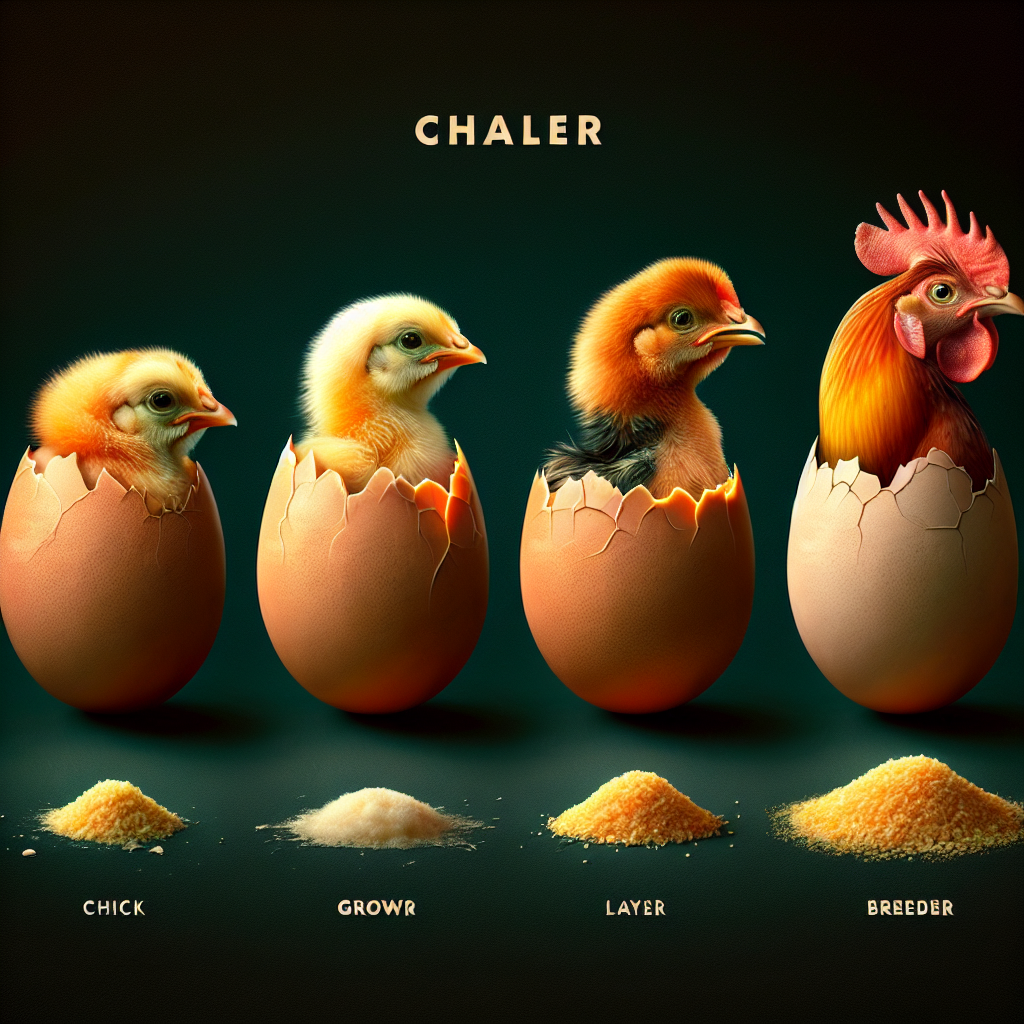Have you ever wondered what exactly a chicken needs to eat to stay healthy and thrive? In this article, we will explore the dietary essentials for a chicken’s daily diet. From the importance of high-quality protein to the necessary vitamins and minerals, we will delve into the key components that make up a well-balanced chicken diet. By understanding the nutritional needs of chickens, you can ensure that your feathered friends are receiving the proper nourishment they need for optimal health and productivity. So, let’s dive into the world of chicken nutrition and learn how to keep our poultry pals happy and well-fed!
Protein
Importance of Protein
Protein is an essential nutrient that plays a vital role in the health and well-being of your body. As a chicken, protein is especially important for your growth, development, and overall body function. It is responsible for building and repairing tissues, producing enzymes and hormones, supporting a strong immune system, and maintaining healthy feathers. Protein also provides energy and helps regulate your metabolism. Without enough protein in your diet, you may experience stunted growth, reduced immune function, and poor overall health.
Sources of Protein
As a chicken, you have a variety of options when it comes to getting your protein fix. One of the most common sources of protein for chickens is soybean meal, which is rich in essential amino acids. Other plant-based sources include peas, lentils, and sunflower seeds. Animal-based sources of protein include fish meal and meat by-products. Additionally, you can also get protein from insects and worms, which are a natural part of a chicken’s diet. Ensuring a balanced and diverse diet will provide you with the necessary protein your body needs to thrive.
Recommended Amount
The amount of protein you need in your daily diet depends on various factors, such as your age, size, and lifestyle. As a general guideline, it is recommended that you consume around 16-20% of your total daily calorie intake from protein sources. This means that if you consume 1000 calories per day, about 160-200 calories should come from protein. It’s essential to work with a knowledgeable animal nutritionist or veterinarian to determine the ideal protein requirements for your specific needs.
Carbohydrates
Importance of Carbohydrates
Carbohydrates are another crucial component of a chicken’s daily diet. They are an essential source of energy, providing fuel for your body’s various functions, including movement, digestion, and egg production. Carbohydrates are broken down into glucose, which is then used by your cells to produce energy. Without enough carbohydrates in your diet, you may experience a lack of energy, poor growth, and impaired egg production.
Sources of Carbohydrates
As a chicken, there are various sources of carbohydrates that you can incorporate into your diet. Grains such as corn, wheat, barley, and oats are excellent sources of carbohydrates. These can be provided in the form of whole grains, pelleted feeds, or scratch grains. You can also consume starchy vegetables like potatoes or sweet potatoes for an additional carbohydrate boost. Just like with protein sources, it’s important to ensure a diverse and balanced diet to meet your carbohydrate needs.
Recommended Amount
The recommended amount of carbohydrates in your daily diet is approximately 50-60% of your total calorie intake. This means that if you consume 1000 calories per day, around 500-600 calories should come from carbohydrates. However, it’s important to note that the specific carbohydrate requirements may vary based on factors such as age, activity level, and overall health. Consulting with an expert in chicken nutrition will help determine the optimal carbohydrate intake for your specific needs.
Fats
Importance of Fats
While often misunderstood, fats play a crucial role in your body’s overall health and function. As a chicken, fats provide a concentrated source of energy, delivering more than twice the calories per gram compared to proteins and carbohydrates. Fats are essential for the absorption of fat-soluble vitamins, including vitamins A, D, E, and K. They also aid in hormone production, insulation, and protection of vital organs. Additionally, fats contribute to the flavor and texture of your diet, making it more palatable.
Sources of Fats
There are various sources of fats that you can include in your diet. Plant-based sources include vegetable oils, such as soybean, corn, or olive oil. Animal-based sources include fish oil and meat fats. Fats can also be found in seeds like sunflower and flaxseeds. Including a balance of different fat sources in your diet ensures a diverse and nutritionally adequate fat intake.
Recommended Amount
The recommended amount of fat in your daily diet should be around 10-15% of your total calorie intake. This means that if you consume 1000 calories per day, approximately 100-150 calories should come from fat. However, it’s important to note that fat requirements may vary based on factors such as age, breed, and egg production. Consulting with an expert in chicken nutrition will help determine the optimal fat intake for your specific needs.
Vitamins
Importance of Vitamins
Vitamins are essential organic compounds that your body needs in small amounts to maintain optimal health and well-being. They play a crucial role in various bodily functions, including cell growth, immune function, and overall metabolism. As a chicken, getting a sufficient amount of vitamins is vital for maintaining a strong and robust immune system, healthy feathers, and overall vitality.
Vitamin A
Vitamin A is important for maintaining good vision, promoting healthy skin and feathers, and supporting the reproductive system. It can be found in orange and dark-green vegetables, such as carrots, spinach, and kale.
Vitamin D
Vitamin D is crucial for the absorption and utilization of calcium and phosphorus, which are essential for strong bones and eggshell formation. It can be synthesized in your body through exposure to sunlight. Additionally, it can be found in small amounts in fish liver oils and egg yolks.
Vitamin E
Vitamin E is an antioxidant that helps protect your cells from damage. It also plays a vital role in maintaining healthy feathers and reproductive health. Good sources of vitamin E include seeds, nuts, and vegetable oils.
Vitamin K
Vitamin K is necessary for proper blood clotting and bone metabolism. It can be found in green leafy vegetables, such as kale, spinach, and broccoli.
B Vitamins
B vitamins, including thiamine, riboflavin, niacin, pantothenic acid, pyridoxine, biotin, folic acid, and cobalamin, are important for various metabolic functions in your body. They can be found in a variety of food sources, including grains, legumes, and green leafy vegetables.
Vitamin C
While chickens have the ability to synthesize their own vitamin C, supplementation may be necessary during times of stress or illness. Vitamin C is important for a healthy immune system and collagen production. It can be found in fruits such as oranges, strawberries, and kiwis.
Minerals
Importance of Minerals
Minerals are inorganic substances that your body requires in small amounts but are essential for various physiological processes. They play a crucial role in maintaining healthy bones, regulating body fluids, producing hormones, and aiding in enzyme function. As a chicken, getting an adequate amount of minerals is vital for overall health and well-being.
Calcium
Calcium is crucial for the development and maintenance of strong bones and eggshell formation. It can be found in sources such as limestone grit, oyster shell, or crushed eggshells.
Phosphorus
Phosphorus works together with calcium to support bone health and is essential for various metabolic processes. It can be found in grains, legumes, and meat by-products.
Potassium
Potassium plays a vital role in regulating fluid balance, nerve function, and muscle contractions. It can be found in sources such as bananas, potatoes, and leafy greens.
Iron
Iron is necessary for the production of hemoglobin, which carries oxygen to your body’s cells. Good sources of iron include meat by-products, such as liver, as well as dark leafy greens.
Zinc
Zinc is important for immune function, proper growth, and reproductive health. It can be found in meat by-products, legumes, and seeds.
Copper
Copper is essential for the production of red blood cells and the proper functioning of the immune system. It can be found in meat by-products, liver, and shellfish.
Manganese
Manganese is necessary for proper bone development, metabolism, and antioxidant function. It can be found in grains, legumes, and fruits.
Selenium
Selenium is an essential trace mineral that plays a crucial role in antioxidant defense and thyroid hormone metabolism. It can be found in sources such as meat by-products and grains.
Water
Importance of Water
Water is often referred to as the “forgotten nutrient,” yet it is vital for your overall health and survival. As a chicken, water is essential for digestion, nutrient absorption, regulating body temperature, and excreting waste products. It helps maintain proper hydration, ensuring your bodily functions can operate efficiently.
Amount of Water
On average, chickens need around 1.5 to 2 times the amount of water as the amount of feed they consume. This means that if you consume 100 grams of feed, you will need approximately 150-200 milliliters of water. However, water requirements may vary based on factors such as temperature, activity level, and overall health. Ensuring access to clean, fresh water at all times is crucial for meeting your water needs.
Grains
Types of Grains
Grains are an important part of your diet, providing a valuable source of carbohydrates, fiber, and essential nutrients. As a chicken, you can enjoy a variety of grains, including corn, wheat, barley, oats, and rice. These grains can be provided in the form of whole grains, ground grains, or pelleted feeds. A mixture of different grains ensures a balanced and diverse diet, promoting optimal health and vitality.
Benefits of Grains
Grains offer several benefits to your overall health and well-being. They are a great source of energy, providing carbohydrates that fuel your body’s various functions. Grains also contribute to your daily fiber intake, promoting healthy digestion. Additionally, grains contain essential vitamins, minerals, and antioxidants that support a strong immune system, enhance feather quality, and improve overall vitality.
Recommended Amount
The recommended amount of grains in your daily diet depends on various factors, such as age, breed, and activity level. As a general guideline, grains should make up around 50-70% of your total diet. This means that if you consume 100 grams of feed, approximately 50-70 grams should come from grains. However, it’s important to work with a knowledgeable animal nutritionist or veterinarian to determine the ideal grain requirements for your specific needs.
Vegetables
Types of Vegetables
Vegetables are a valuable addition to your daily diet, providing important vitamins, minerals, and antioxidants. As a chicken, you can enjoy a variety of vegetables, including leafy greens like spinach and kale, root vegetables like carrots and beets, and cruciferous vegetables like broccoli and cauliflower. Incorporating a wide range of vegetables into your diet ensures a diverse and nutritionally balanced meal plan.
Benefits of Vegetables
Vegetables offer numerous benefits to your overall health and well-being. They are a fantastic source of essential vitamins and minerals, including vitamin A, vitamin C, potassium, and manganese. These nutrients support a strong immune system, promote healthy feathers, and boost overall vitality. Vegetables are also rich in fiber, which aids in digestion and helps prevent digestive issues.
Recommended Amount
The recommended amount of vegetables in your daily diet depends on factors such as age, breed, and overall health. As a general guideline, vegetables should make up around 15-20% of your total diet. This means that if you consume 100 grams of feed, approximately 15-20 grams should come from vegetables. However, it’s important to consult with an expert in chicken nutrition to determine the ideal vegetable requirements for your specific needs.
Fruits
Types of Fruits
Fruits are a delicious and nutritious addition to your daily diet, providing essential vitamins, minerals, and natural sugars. As a chicken, you can enjoy a variety of fruits, including apples, berries, melons, and citrus fruits. These fruits offer a refreshing and flavorful way to boost your nutrient intake and satisfy your taste buds.
Benefits of Fruits
Fruits offer a wide range of benefits to your overall health. They are packed with essential vitamins, including vitamin C, which supports a healthy immune system and collagen production. Fruits are also high in antioxidants, which help protect your cells from damage. Additionally, fruits provide natural sugars, which offer a quick source of energy. Including fruits in your diet promotes optimal health, enhances feather quality, and supports overall vitality.
Recommended Amount
The recommended amount of fruits in your daily diet depends on various factors such as age, breed, and overall health. As a general guideline, fruits should make up around 5-10% of your total diet. This means that if you consume 100 grams of feed, approximately 5-10 grams should come from fruits. It’s important to note that while fruits are beneficial, they should be fed in moderation to avoid excessive sugar intake. Consulting with an expert in chicken nutrition can help determine the ideal fruit requirements for your specific needs.
Insects and Worms
Importance of Insects and Worms
As a chicken, including insects and worms in your diet offers numerous benefits. Insects and worms are a natural part of your diet and provide a valuable source of protein, essential amino acids, and other nutrients. They help meet your dietary requirements, support healthy growth and development, and promote overall vitality.
Benefits of Insects and Worms
Insects and worms offer several benefits to your overall health. They are a rich source of high-quality protein, which supports muscle development and maintenance. They also provide essential amino acids that are necessary for various bodily functions. Insects and worms are also rich in vitamins and minerals, such as iron and zinc, which support a strong immune system and overall well-being.
Recommended Amount
The recommended amount of insects and worms in your daily diet depends on various factors, including access to natural foraging and alternative protein sources. However, including insects and worms in your diet as a supplement can significantly enhance your nutritional intake. Consulting with an expert in chicken nutrition can provide guidance on the optimal amount of insects and worms to include in your diet.
In conclusion, as a chicken, it is crucial to have a well-rounded and balanced diet to maintain optimal health and well-being. Protein, carbohydrates, fats, vitamins, minerals, water, grains, vegetables, fruits, and even insects and worms all play important roles in your daily diet. By understanding the importance of each nutrient and incorporating a variety of sources into your diet, you can ensure that you are meeting your dietary essentials and living a healthy and vibrant life. Remember, consulting with an expert in chicken nutrition will provide valuable guidance tailored to your specific needs and ensure a happy and nourished chicken life.




